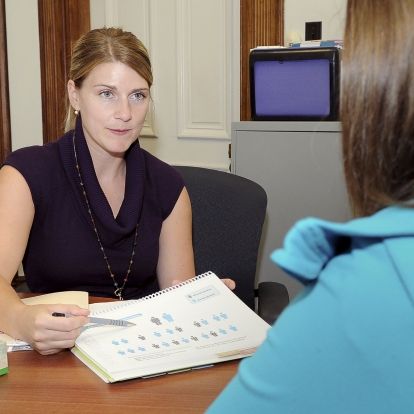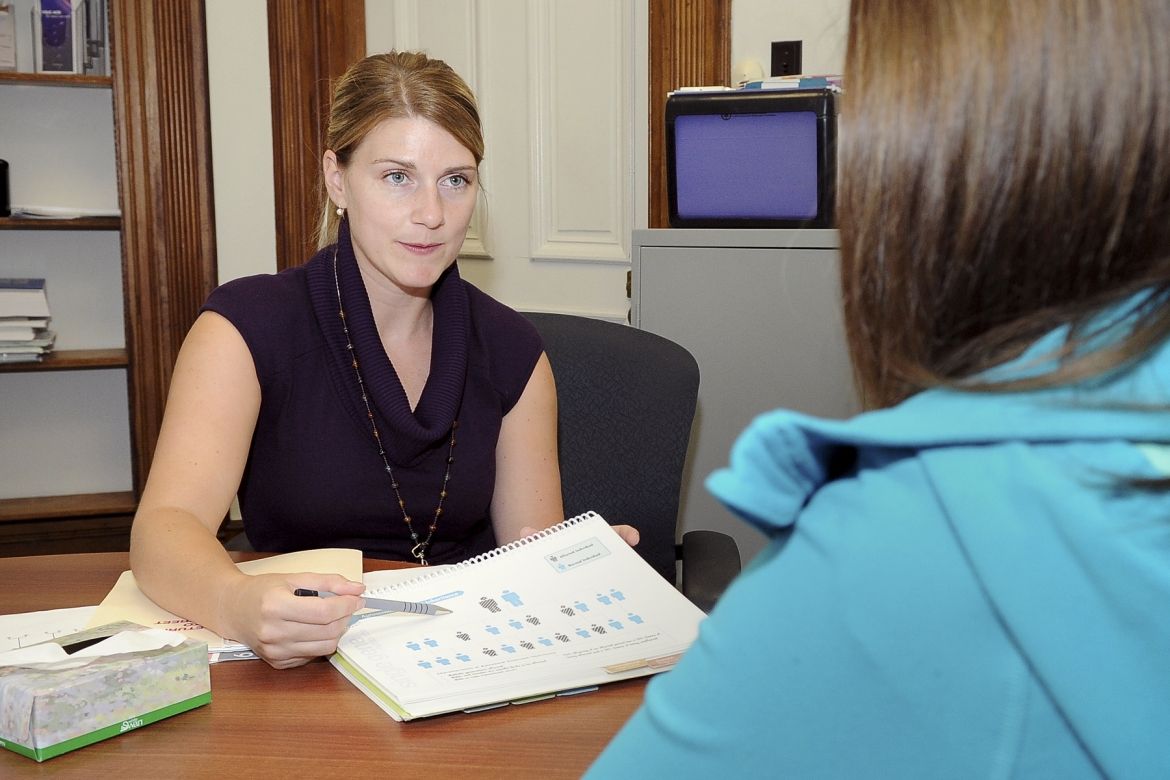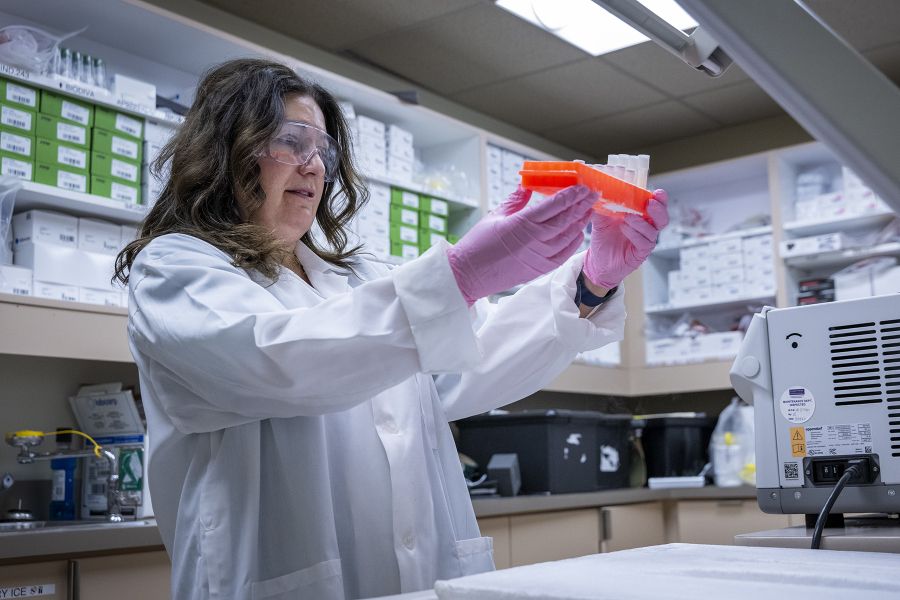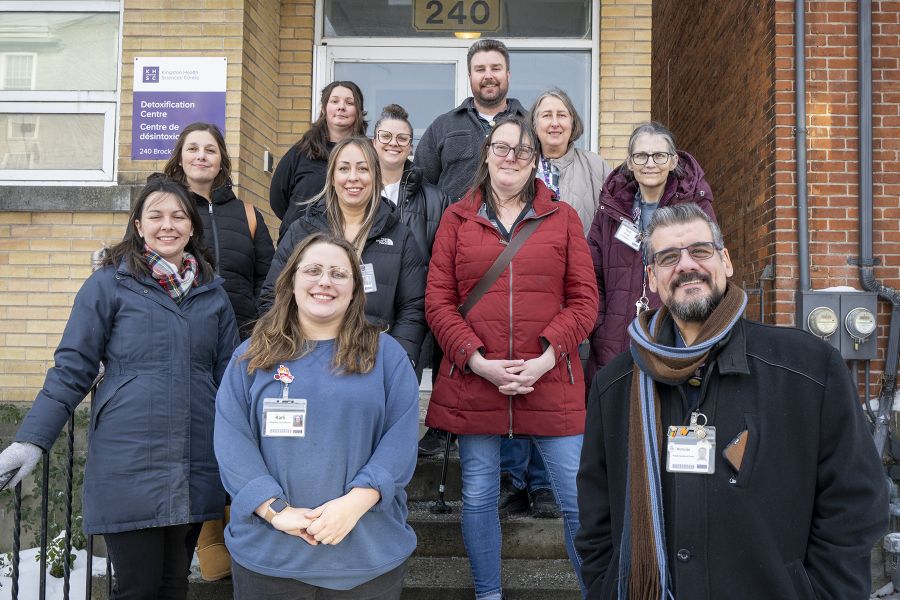Effective immediately masking is required for everyone when present on all inpatient units, in the Emergency Department (ED), the Urgent Care Centre (UCC), and the Children’s Outpatient Centre (COPC).
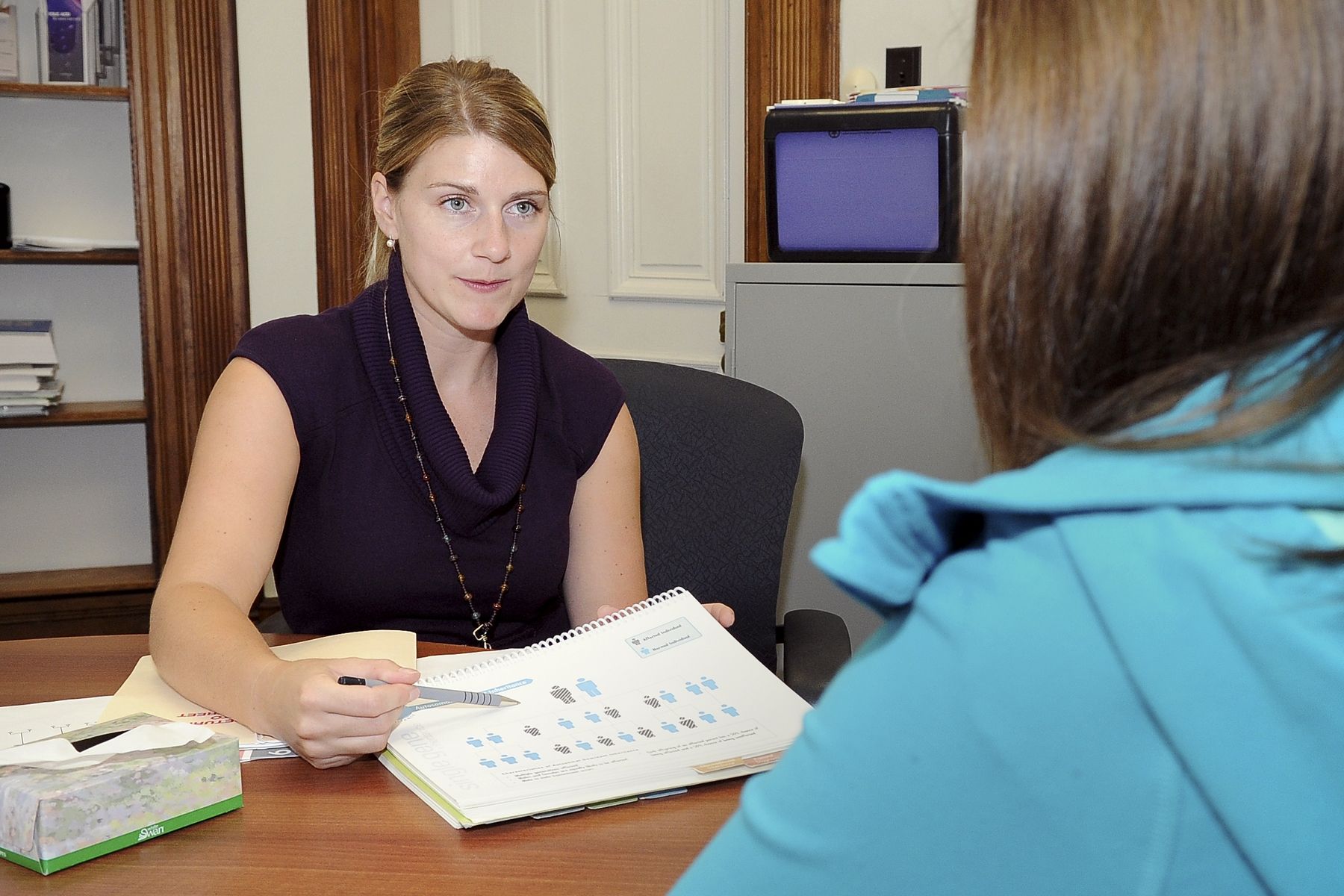
With more and more women choosing to have children later in life, you might expect that Canadian healthcare practitioners would agree on the age at which expectant mothers should be screened for the risk of having a child born with a genetic condition, such as Down Syndrome.
But that's not the case researchers at Kingston General Hospital have discovered. In a recently published study, Genetic Counselor Danna Hull, Geneticist Dr. Christine Armour and obstetrician Dr. Gregory Davies found that healthcare practitioners from coast to coast have different definitions of what constitutes 'advanced maternal age'. "At KGH the advanced maternal age is 35 whereas in Ottawa, it's 40," says Hull. "That means the 35-year-old who comes to KGH to find out what her chances are of having a baby born with Down Syndrome will be given different prenatal diagnostic testing options for finding out than she would in Ottawa." That's important because, based on her age, a woman will be presented with testing choices such as amniocentesis or chorionic villus sampling (CVS) - invasive procedures that carry an inherent risk of miscarriage. Complicating the matter further, the researchers determined that the protocols not only vary from province to province and within cities but in some cases, can even differ within individual health care centers. "There is no guideline. So a woman with the same characteristics as another woman could potentially be told that she's at higher risk for having a baby born with a genetic condition depending on where she is," she says. Armour says the study results are an opportunity to generate some change. "One of the goals of Canadian healthcare is to have the same kind of care across the country," she says. "As a clinician, I would have a lot more confidence in knowing that I'm telling a patient the same thing as another clinician down the highway." The team hopes the study will impact policy makers to standardize prenatal management options across Canada. "We need to come to a collaborative approach," says Hull. The study was published in the July issue of the Journal of Obstetrics and Gynaecology of Canada and it will presented at the 22nd World Congress on Ultrasound and Obstetrics and Gynecology, to be held in Copenhagen in September.

